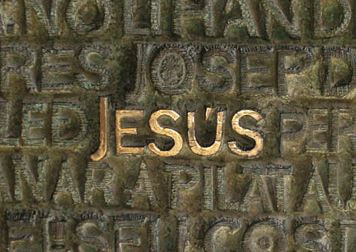 As I was praying and asking the Lord to give me a closing message for this year, my attention was drawn away to an email I received from a dear friend in the Lord’s work. He was reflecting on the hymn, “Abide with Me” written by Henry Francis Lyte (1793 – 1847). This took me back to the words of Jesus in His last meeting and meal with the disciples before He was arrested, tried and killed. He spent an evening with them unloading the deepest emotions of His heart toward them and giving the most valuable and necessary instructions that would carry them through their darkest hours and days until the Holy Spirit came and filled them. In this unique, sacred time alone with the disciples, Jesus introduced the coming of the Holy Spirit. Along with this He gave them the analogy of the vine and branches and said, “Abide in Me” (John 15:4). There is no better way to end 2018 and start 2019 than to allow this instruction to seep into the fabric of our souls so it transforms our lives. In a world full of distractions, we in the Lord’s work are often distracted and become so busy with ‘doing,’ that we fail to realize that our busyness is the devil’s tool to disconnect us from ‘being’ in the source of life, power and fruitfulness. We know that word “abide” means to “remain.” We cannot afford to be disconnected from our Lord and Master. In the next couple of days, I want to speak to your heart about what this means in your life and ministry. For right now, I ask you to listen to the voice of the Living Vine. “ABIDE IN ME!” Turn off all your electronics, shut the door of your closet, and ask Jesus to speak clearly to your heart. What will He tell you to remove from your life so you can ABIDE IN HIM?
0 Comments
 Just before the verse in Hebrews 10 we looked at yesterday, the writing gives us another “let us.” The context reminds us of why we are able to “draw near to God.” The blood of Jesus has provided a “new and living way” and He has become our “High Priest over the house of God” (10:19-21). Jesus’ sacrifice has provided a way to draw near to God through His death on the cross. We then can collectively come near the presence of God. Since we as believers and the Church stand in the midst of a world rushing on to judgment, we must be those who intercede with God for the lost. Paul “urged” Timothy to make “supplications, prayers, intercessions, and thanksgivings…for all people.” Why is this important? Because “this is good, and it is pleasing in the sight of God our Savior, who desires all people to be saved and to come to the knowledge of the truth” (1 Timothy 2:1-4). This attitude of God toward all people informs the way we pray for them. Now, return to our verses in Hebrews 10:22, there are requirements as we draw near to God: · “A true heart” – genuine and sincere. · “Full assurance of faith” – absolutely and completely certain of God in whom my faith rests. · “Hearts sprinkled clean from an evil conscience” – knowing that your heart is purified from moral failure and given the ability to discern between right and wrong. · “Our bodies washed with pure water” – the Holy Spirit cleansing our lives through the word (Ephesians 5:25-26; John 7:37-39). As these qualities form our lives, our freedom and passion to draw near to God will grow and our prayers will reflect the heart of God. He will act in power to glorify Himself through His work.  There is a very serious problem we face in our day. As cultures advance in evil and ungodly living, and the speed of communication transmits sinful ideas into our lives so easily, the tendency with some is to lose our grip on faith and biblical principles. While this is not a new problem for Christians anywhere in the world, as the end draws near, the pressure to give in to these forces of evil increases which means we must be all the more intentional about our walk in the Spirit. Therefore, “let us hold fast the confession of our hope without wavering, for He who promised is faithful” (Hebrews 10:23). To “hold fast” means to continue believing and acting in accordance with such belief. It is the same concept that Paul gave the Thessalonians; “Finally, then, brothers, we ask and urge you in the Lord Jesus, that as you received from us how you ought to walk and to please God, just as you are doing, that you do so more and more. For you know what instructions we gave you through the Lord Jesus” (1 Thessalonians 4:1–2). The next phrase in Hebrews 10:23 is just as important, “without wavering.” This means to “hold fast the confession” without changing what you came to believe about the Lord Jesus at the first. As God “who promised is faithful,” so we must be faithful, not only as a true disciple of Jesus Christ, but also as an ambassador for Christ in reconciling the world to God through Him (2 Corinthians 5:18-21). You cannot convince others to believe unless your faith is anchored and firm. Remember the story in Acts 19 where “some of the itinerant Jewish exorcists undertook to invoke the name of the Lord Jesus over those who had evil spirits…But the evil spirits answered them, “Jesus I know, and Paul I recognize, but who are you?” (19:13-15). Be careful and make sure your faith in the Lord Jesus is genuine, firm and immovable. How we live in these days is very important. As we saw yesterday, Peter has some very specific areas that we should give attention to and he ends the section with an overarching reason why we should (1 Peter 4:7-11).
· Keep loving one another earnestly (an unceasing activity with intensity that does not decrease over time). That is challenging! · Genuine love covers a multitude of sins. Where sin is involved, we work through love so as to restore, so the sin is covered and never seen again. · Show hospitality (to strangers) to one another without grumbling (complaint or discontent). · Use the gift you received to serve one another (a humble menial care for someone else). · Speak as an oracle of God (a message or lesson that needs to be taught others). · Serve by the strength (capability) that God supplies. There is one and only one purpose behind these admonitions and godly ambitions; “in order that in everything God may be glorified through Jesus Christ” (4:11). That leaves no option for us to live any part of our lives without considering for God’s glory as the outcome. Peter also gives us the means by which we can do this – “through Jesus Christ.” Human effort will never accomplish this. More education will not give us the ability. Money and possession cannot produce this character. “Through Jesus Christ” is the only way!  Peter has some thought provoking and soul-searching statements that we need to consider as we approach the end of this year. The end of the year is not a huge issue, nor are all the world events as critical as what we do with our lives as we “wait for our blessed hope, the appearing of the glory of our great God and Savior Jesus Christ” (Titus 2:13). World events have always caused Christians to think the end is near and the Lord will return. Conflict and world wars, natural disasters and those who predict when the end will come, have been distractions from the beginning of the Church. So many forget the Lord’s words; “But concerning that day and hour no one knows, not even the angels of heaven, nor the Son, but the Father only” (Matthew 24:36, see also Mark 13:32). What should be our attitude? Getting back to Peter, he admonishes us; “The end of all things is at hand; therefore, be self-controlled and sober-minded for the sake of your prayers” (1 Peter 4:7). The condition of our hearts and minds, and therefore our lives, depends on our communion with the Father, Son and Holy Spirit. We will only know the work God has for us in these “last days” if we are in active fellowship with Him. This requires a “self-controlled and sober-mind” to avoid distraction by lesser things and other voices. This is for the sake of our prayers. Remember the words of Jesus; “My sheep hear My voice, and I know them, and they follow Me” (John 10:27). Are you hearing Him speak through His Word? It has authority and will guide what you do in these last days! In the next couple of days, we will examine the verses that follow in Peter’s letter. Stay tuned. “So His fame spread throughout all Syria, and they brought Him all the sick, those afflicted with various diseases and pains, those oppressed by demons, those having seizures, and paralytics, and He healed them. And great crowds followed Him from Galilee and the Decapolis, and from Jerusalem and Judea, and from beyond the Jordan” (Matthew 4:24–25). No small area was influenced right from the start of His ministry.
In the face of Jesus’ stern instructions to the two blind men who received their sight “that no one knows about it…they went away and spread His fame through all that district” (9:27-31). Was their disobedience a serious matter or was it an overwhelming gratitude for what Jesus had done for them. Looking at the situation from Jesus’ point of view, His ministry from chapter 4 had stirred the crowds and gathered amazing public attention. He may have been wisely seeking to avoid an uprising against the Romans which would have greatly pleased the Jews, but it was not the time. As Jesus was teaching “with authority” and expelling an unclean spirit from a man, those in the synagogue “were astonished at His teaching” (Mark 1:21-28). “And at once His fame spread everywhere throughout all the surrounding region of Galilee” (1:28). Take a moment and look deeply into your own life. Carefully recount all that Jesus has done for you. Is there any reason why you should not spread His fame so that others can experience the same freedom from sin and gift of eternal life that you have? I find it very interesting in Isaiah 9:6 at the beginning of the list of names given to Jesus in this prophetic passage, that the word “name” is both singular and says more than just a label or title. The word “name” refers to Jesus “renown, fame and reputation. That is so important when we consider the name of Jesus.
“For to us a child is born, to us a son is given; and the government shall be upon his shoulder, and his name shall be called Wonderful Counselor, Mighty God, Everlasting Father, Prince of Peace.” (Isaiah 9:6). These names given in this verse are proof that He will have a government that will rule the world with perfect justice, righteousness and peace. “Of the increase of his government and of peace there will be no end, on the throne of David and over his kingdom, to establish it and to uphold it with justice and with righteousness from this time forth and forevermore. The zeal of the Lord of hosts will do this” (9:7). Consider that fact that Jesus was “upholding the universe by the word of His power” (Hebrews 1:3) even while a babe in lowly conditions of a manger. He never ceased to be what He was (God) by what He became (man). The two conditions or natures coexisted in Him. “Who, though He was in the form of God, did not count equality with God a thing to be grasped, but emptied Himself, by taking the form of a servant, being born in the likeness of men” (Philippians 2:6–7). These thoughts are best contemplated than explained. When we do, we are led to worship.  With social media speed, news travels at the speed of light today. Usually we are informed of bad news sooner than good news. God has hand-picked His news agents who would faithfully share His GOOD NEWS accurately and faithfully. As a physician, Luke pays careful attention to details like this because he was an “eyewitness” and “followed all things closely for some time” (Luke 1:2-3). God chose “shepherds out in the field, keeping watch over their flock by night” (2:8), persons who were faithful in their responsibilities and would be faithful in a very important assignment. The angel gave them the message that God wanted them to share, “Fear not, for behold, I bring you good news of great joy that will be for all the people” (2:10). Since this happened at night, they were fearful when the angel appeared to them, that is, until the message he brought filled their hearts with great joy. What was the heart of this? A Savior was born that day in the city of David (Bethlehem) (2:11). This was the purpose of the Messiah coming to His people Israel. They were hoping for a deliverer from the oppression of Rome, but what they and all mankind needs more than anything is deliverance from the greatest oppression; sin that holds the soul in bondage to eternal judgment. This savior’s name, Jesus, was given because “He will save His people from their sins” (Matthew 1:21) – forgiveness and release from bondage! This message “will be for all the people” (Luke 2:10). The shepherds are no longer here, but you and I are. Will we make sure others hear the GOOD NEWS OF GREAT JOY? The Prophet Isaiah presents to us one of the most amazing statements about Jesus ever written by Old Testament writers. “For unto us a child is born, to us a son is given” (Isaiah 9:6). This statement is profound in two ways; the prophet affirms what is believed by Christians from the very beginning of the Church, that Jesus is fully man (His humanity) and is fully God (His deity).
The “child” follows what is said in Isaiah 7:16 that He was a “boy” (See Luke 2:43). Every child is born with a human condition, but with Jesus, He was born “without sin” (Hebrews 4:15). Further confirming Jesus’ humanity is Hebrews 10:5, “Consequently, when Christ came into the world, he said, “Sacrifices and offerings you have not desired, but a body have you prepared for me.” How then should we understand this Messiah as a “son…given”? This action of God is distinct from human birth that required the virgin to be the means of coming into manhood. The “giving” of God proved what He already had as we see in John 3:16; “For God so loved the world, that He gave His only Son.” “He [God] who did not spare His own Son but gave Him up for us all” (Romans 8:32). This glorious truth about the Son is His deity. While it is impossible for any of us to fully understand these two aspects of Jesus, the Messiah, our Savior, it is accepted by faith and by the Spirit’s teaching through the Word of God. Both Jesus’ humanity and deity were required for God to come near to us in humanity, and also become a sacrifice for our sins so God’s holy judgment against sin would be completely satisfied. Will you gather your family and others around at this Christmas season and worship the Lord Jesus, the child born for us, but also the Son given to us by God? HE IS WORTHY!!!  Take a moment with a piece of paper and pen or pencil and write down all the names of Jesus you can think of in both the Old and New Testament without opening your Bible. You might be surprised at how many you can remember. It wasn’t long after the Holy Spirit came and filled the hundred and twenty that they immediately found opportunities to minister in the name of Jesus. It was the same name the angel of the Lord gave to Joseph and Mary before His birth; “you shall call His name Jesus, for He will save His people from their sins” (Matthew 1:21). The power to heal a lame man was not in Peter and John, but “in the name of Jesus Christ of Nazareth, rise up and walk” (Acts 3:6). From this healing moment, persecution rose up against these disciples of Jesus. When they were asked “by what power or by what name did you do this? Peter filled with the Holy Spirit said to them…let it be known to all of you and to all the people of Israel that by the name of Jesus Christ of Nazareth, whom you crucified, whom God raised from the dead—by him this man is standing before you well” (Acts 4:10). That was not all that Peter had to say about this great and glorious name; “This Jesus is the stone that was rejected by you, the builders, which has become the cornerstone. And there is salvation in no one else, for there is no other name under heaven given among men by which we must be saved” (Acts 4:11–12). Let us not forget that by this name, Jesus, people are both saved and held accountable for what they do with Him. We give people the glorious name for salvation. He will hold them accountable. |
Archives
June 2024
Link To Our Old Blog:
|

 RSS Feed
RSS Feed